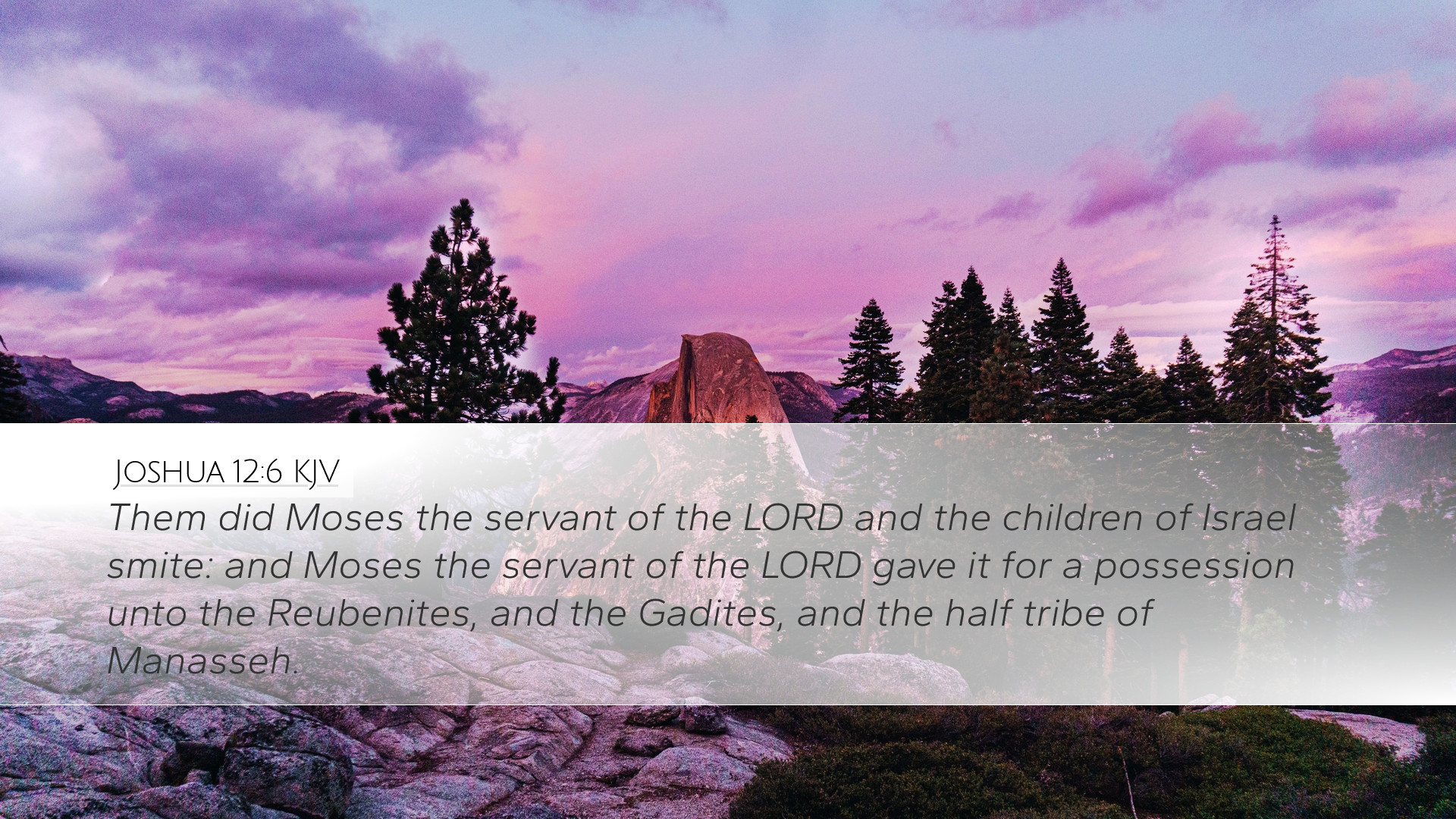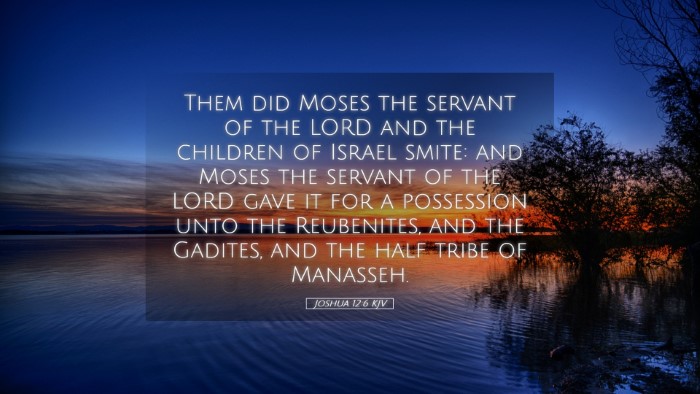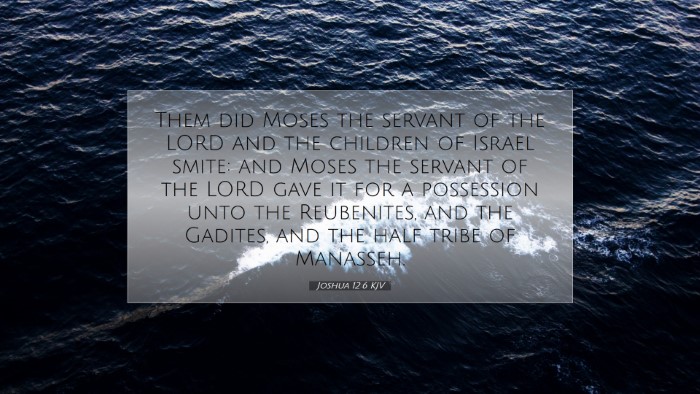Bible Commentary on Joshua 12:6
Text of Joshua 12:6: “Them did Moses the servant of the Lord and the children of Israel smite: and Moses the servant of the Lord gave it for a possession unto the Reubenites, and the Gadites, and the half tribe of Manasseh.”
Introduction
This verse serves as a concise record of the conquests achieved by Moses and the Israelites under his leadership before entering the Promised Land. It highlights the theological and historical significance of the land allocated to the tribes of Reuben, Gad, and half the tribe of Manasseh.
Historical Context
The verse falls within a broader section of the book of Joshua that recounts the victories over different kings and regions. Historian and theologian Matthew Henry emphasizes that these victories were instrumental in establishing the foundation for the Israelites' future in the land of Canaan.
- Moses as Leader: This verse acknowledges Moses not only as a great prophet but also as a military leader who led the Israelites in battle.
- Division of Land: The mention of land given to specific tribes reflects the fulfillment of God's promises regarding their inheritance.
Theological Significance
Albert Barnes points out that this allocation of land included territories east of the Jordan River, which signifies God's providence and the careful planning behind the distribution of land among the tribes.
- Covenantal Fulfillment: This act is depicted as a fulfillment of God's covenant, showcasing His commitment to the descendants of Abraham, Isaac, and Jacob.
- Inheritance and Identity: The land symbolizes more than just possession; it represents identity, belonging, and God's promises to His people.
Reflection on Leadership
Adam Clarke provides valuable insights into Moses’ role and the implications of his leadership:
- Servant Leadership: Moses is described as "the servant of the Lord," highlighting humility and obedience in leadership.
- Delegation and Trust: By allocating land to the tribes, Moses demonstrates trust in God’s plan and in the leaders of the tribes to manage their inheritances responsibly.
Lessons for Today
This verse invites modern readers, including pastors and theologians, to reflect on several key lessons:
- Faithful Service: Leaders today are encouraged to serve with faithfulness and a focus on God’s directives, much like Moses did.
- Responsibility and Stewardship: Those who are given leadership and resources must manage them wisely and for the benefit of their communities.
Conclusion
In summary, Joshua 12:6 not only recounts a historical event but also serves as a rich source of theological reflection and moral guidance. From understanding God’s promises to witnessing the importance of responsible leadership, this verse continues to resonate with believers today.


